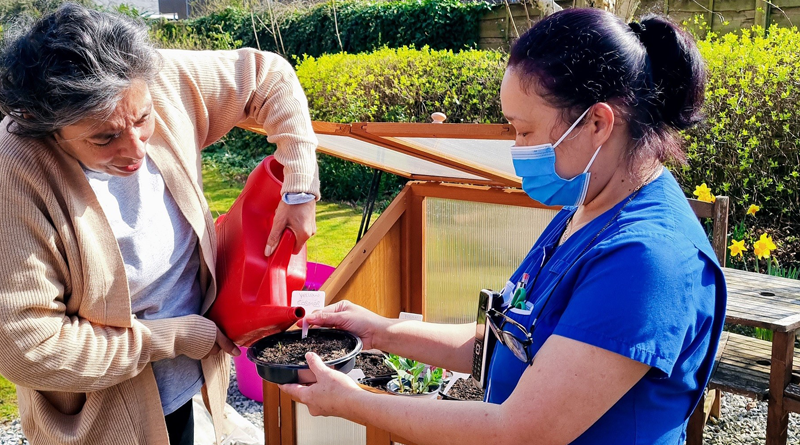Care UK Raises Awareness On World Alzheimer’s Day
To raise awareness on World Alzheimer’s Day, Care UK is looking at the differences between Alzheimer’s and Dementia. Understanding the differences is crucial in providing the correct treatment and effective support within the care home setting for those living with Alzheimer’s or Dementia and their families.
Dementia is an umbrella term used to describe a wide range of symptoms that affect a person’s memory, way of thinking, and behaviour. It is a progressive condition, meaning that it gets worse over time, and can make everyday tasks difficult for those living with it to do independently.
Alzheimer’s disease is the most common form of dementia, accounting for 60-80% of cases. It is caused by cell damage to the brain, and typically impacts the part of the brain associated with learning first, which is what causes those living with it to have difficulty remembering new information. As Alzheimer’s advances, symptoms can develop into disorientation, confusion, and behaviour changes. Over time speaking, swallowing, and walking can also become difficult.
The most common risk of Alzheimer’s is increasing age, but not everyone will get it as they grow older. Most people with Alzheimer’s are 65 and older, however there are approximately 200,000 people under 65 living with younger-onset Alzheimer’s.
Suzanne Mumford, Head of Nursing, Care and Dementia at Care UK, emphasises the importance of raising awareness about Alzheimer’s and dementia. She states: “Understanding the differences between Alzheimer’s and Dementia is critical for an accurate diagnosis and providing appropriate care. By educating ourselves and others, we can provide better support to individuals and their families who are affected by these conditions.”
At Care UK, we support those living with Alzheimer’s in many ways daily. One of the standout examples would be Deputy Manager at Hollins Park, Jasmin Lanzaderas who was given the Elsie Wagg Scholarship for her plans to create a therapeutic garden space for residents, especially those with dementia and Alzheimer’s. The garden featured different destination areas, such as an outdoor pub, a sweet shop, a greenhouse, a sensory path, and a water feature.
Tracy Norbury Home Manager said: “We are thrilled to have been awarded the Elsie Wagg Scholarship. It’s a fantastic achievement and a true testament to Jasmin’s hard work putting together such a brilliant and innovative proposal. Gardening itself has many therapeutic benefits for older people, especially those living with dementia, encouraging physical activity and time spent outdoors, which can help to lower stress and anxiety levels.”

